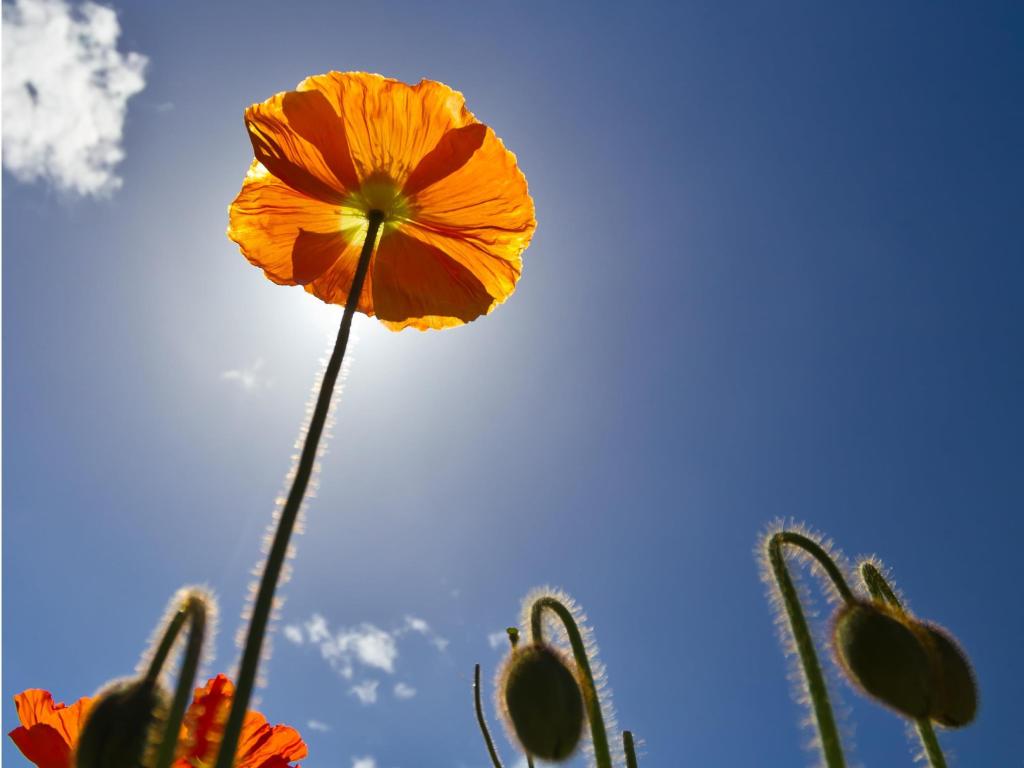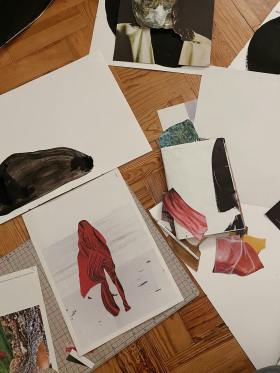Image via Shutterstock
There is a toxic social phenomenon that impacts almost every successful or fledgling creative. It’s a tendency to cut others down for their achievements. To criticise or undermine those who display their difference, originality, ambition or unique talent. It’s a cluster of envy, low self-esteem, fear and resentment, and it disassembles supportive communities: it’s called tall poppy syndrome.
While tall poppy syndrome may stem from a distinctly Australian cultural narrative, rooted in colonial values of egalitarianism or the ‘fair go’ mentality, variations can be spotted in countries across the globe. It can have devastating effects on individuals, particularly when it comes to creative pursuits.
Irrespective of your age or career stage, chances are you have encountered the symptoms of tall poppy – hesitating to share your work for fear it will be stolen or criticized; a weariness of talking about your work or celebrating your success; or feeling as if certain opportunities and pathways are blocked.
Having lived abroad extensively – from New York to Tokyo and most recently Amsterdam, Australian artist and designer Karan Singh has also seen traces of the phenomena in various cities.
‘The more I travel, the more I see that a lot of countries have a similar sentiment, depending on the social structure,’ he explains. ‘In Japan there is a similar expression, ‘The nail that sticks out is hammered down’.’
For independent creatives – where standing out is essential to developing a livelihood – the internalised effects of tall poppy syndrome present a problem.
We need to rethink how we view success – in ourselves and others. Here’s how we can make room for more people to flourish instead of cutting them down, and ensure the community is exposed to great work, not deprived of it.
Someone else’s success has no bearing on your own
The misconception that there is a limited amount of success to go around fuels tall poppy syndrome in creative communities – if someone has secured a slice of the pie, then there is less pie to go around. We resort to cutting others down to protect our slice of success, harming the potential growth of those around us.
This lack of support can severely impact on the mental health of any creative, explains director at digital agency Joan, Nick Hallam. ‘It can have the impact of guilt or a little bit of shame doing something creative or your own thing.’
Hallam has felt this most acutely when he compares his experience in Australia to the United States.
‘I think it becomes super clear to me when I think about my experience doing what I do in Australia, versus doing what I do in America – people you barely know will spend so much time and energy helping you get somewhere.’
Read: 50 ways to take care of yourself in the arts
Negativity and a scarcity mindset can be contagious, but small acts of kindness such making an introduction can create a ripple effect.
To diminish tall poppy syndrome, remember your own success is not limited by what someone else has achieved. We can bake our own pie – isn’t that what creative disciplines demand, identifying and creating new opportunities? To add to the metaphor, the more people who turn inward and make their own pies, the greater the demand for pie, or creative work. If anything, the success of those around you increases your own ability to succeed – not limit it.
Reclaim the ‘fair go’ mentality
In Australia, such an emphasis on equalitarianism has stifled ambition for fear of being attacked for standing out.
One of the biggest hangover effects of tall poppy syndrome is this feeling that success is predetermined for you, says Singh.
‘I think sometimes it can be decided for you that you don’t need any more promotion, or that you don’t fit the mould.’
When individual drive or ambition doesn’t match the predetermined cultural norm, creatives can feel isolated, misunderstood or blocked.
But if we flip the ‘fair go’ from meaning everyone must be equal or stick to a predetermined path, to giving everyone a ‘fair go’ to pursue their work, we can perhaps overcome this effect of tall poppy syndrome.
Recognise self-doubt as a symptom
Tall poppy syndrome is most prominent in smaller countries like Australia, as well as small towns. This may be because a smaller population size can make a creative hesitant to ‘make waves.’
‘It’s like comparing a small and large pond with the same-sized rock – any ripples from that rock are going to feel much bigger in Australia than they potentially would do if you’re doing the same thing in a country with 300 million people,’ says Hallam.
Hesitating to make waves often takes the form of self-doubt. One way to flip doubt is to see how a situation can be used to your benefit, rather than your detriment.
As an example, ‘Australia is isolated, we are so far away from everybody else, but the benefit of that is that we can collaborate and develop our own unique tastes if we have the confidence to share and talk about our work and have that dialogue,’ says Singh.
Push yourself to talk about your work
Similar to self-doubt, self-deprecation or the inability to talk about your work stems from the fear of being ‘cut down’ if you appear to be a tall poppy.
While humility can be a virtue, it can become destructive if a creative can’t talk about their work as it limits opportunities.
Recognise the inherent value in talking and sharing ideas. ‘It’s not a bad thing to share your process – it’s investing into rigor and integrity,’ says Australian dance maker Amrita Hepi.
‘That will mean talking about yourself, and not a bad thing to talk about yourself because you know it can be useful,’ Hepi.
Read: How to conquer impostor syndrome
While it can feel uncomfortable to talk about your achievements and work, for others it can be insightful to understand how you’ve approached something.
Sharing also helps to break down the myth of ‘effortlessness creativity.’ As any creative knows, it’s not effortless, it’s hard work to build and sustain a career.
‘In order to feel like you can have a dialogue about creativity, you need to feel comfortable that you can talk about it with other people,’ adds Singh.
Sharing encourages others who may be suffering from the side effects of tall poppy syndrome, self-doubt, or limited opportunities to see the possibilities of their own creative work.
Don’t let tall poppy syndrome block you
We spend so much time riddled with self-doubt, or hesitating to do something new and different, instead of actually doing the work. Ultimately, feeling quashed by tall poppy syndrome stems from worrying about what everyone will think.
To overcome this common creative fear, Hepi recommends interrogating what we mean by ‘everyone.’
‘Question who ‘everyone’ because it’s a racket. We create who everyone is. Think instead of that certain someone or someones who are actually important to you and then do the thing,’ says Hepi.
In other words, getting on with the work is the best antidote.
When Prominent Australian designer Jenny Kee returned to Australia in 1972 after living in London, she felt the wrath of tall poppy syndrome. ‘There was such envy, such jealousy, and such cutting down.’
Her defence was to completely ignore it and keep doing her work. ‘I was so lucky to meet my collaborator Linda Jackson – I just stayed in my bubble and created this extraordinary life and creative life. It didn’t matter what anybody thought.’
For Kee and many creatives across the globe, there is still a hangover effect of tall poppy syndrome and its relatives, but it can be combated if creatives learn to be proud of their work.
‘You have to really step up and say who you are and what you do,’ says Kee. ‘Be careful about what you take on from those around you. I realise I am on my path now, so it doesn’t matter to me. I’m not trying. I am being myself. I think that’s what we should be focusing on.’





